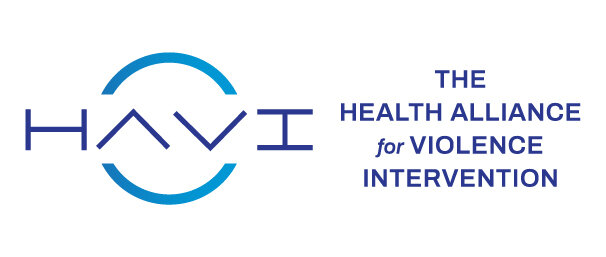Violence Prevention Professional (VPP) Training is the Health Alliance for Violence Intervention’s national training program for frontline violence intervention workers.
What are Violence Prevention Professionals?
The Violence Prevention Professional (VPP) is at the heart of the Hospital-Based Violence Intervention model. VPPs perform a wide range of functions, including relationship building and goal setting in the hospital and intensive case management and advocacy after discharge to ensure continuity of care and successful outcomes. VPPs serve as the critical bridge between the hospital setting and a client's reentry in the community.
Specific responsibilities of VPPs include responding to injured individuals at the hospital bedside, mediating high stress conflicts, case management, and mentoring. Performing these job functions can be extremely demanding, and without adequate training support, the demands of the role can become overwhelming.
What is the Violence Prevention Professional Certification Training?
The Violence Prevention Professional (VPP) Certification training was developed in collaboration between the Health Alliance for Violence Intervention (the HAVI)—which is the sole certifying body for VPPs—and key experts in the field of Hospital-Based Violence Intervention Programs (HVIPs) from around the country.
The training curriculum was specifically developed for paraprofessional, frontline violence intervention staff who have been working in their VPP role at an active HVIP program for at least six months. Upon the completion of the VPP training, participants receive their VPP Certification.
The training curriculum comprises 35 hours over five full days of in-person training. When conducted virtually, the training comprises 40 hours over a flexible schedule to maximize effectiveness and accessibility to participants.
The curriculum employs techniques intended for this specific audience, including large-group presentations, small-group breakout sessions, videos, case study review discussions, and practice sessions/role play, among others. All training materials are provided by the HAVI.
The sessions and topics addressed throughout the VPP Certification Training curriculum are outlined here.
Note: In order to maintain certification, VPPs must complete six hours of continuing education every two years, which most VPPs achieve through attendance at the HAVI’s annual national conference. Additionally, a supervisor must certify that a VPP has worked for a HAVI member program for at least four months over the previous two years.
Who leads the Violence Prevention Professional Certification Training?
VPP Certification Training presenters and facilitators include expert HVIP staff and faculty from programs that are similar in size, structure, and population served to the program/s receiving training. Trainers who implement this robust and dynamic curriculum represent a variety of roles and experiences in HVIP programs as well as specialized training and technical assistance (TTA) providers from the HAVI and partner agencies. Trainers are experts in the content they provide as well as modalities and techniques to best affect change in knowledge, attitude, and behavior among participating Violence Prevention Professional staff.
The Value of the VPP Certification
Participants are trained to uphold national standards of practice and become certified Violence Prevention Professionals. Through the training, participants meet and learn from national leaders in Hospital-Based Violence Intervention from across the country and gain access to a network of other VPPs.
Additionally, in cities or states that provide financial reimbursement for violence prevention services—through Medicaid, for example—HAVI VPP certification typically satisfies regulatory reimbursement requirements.
When are Violence Prevention Professional Trainings offered?
Regularly scheduled trainings are held each year around the HAVI’s annual national conference, and additional trainings are scheduled on a rolling basis according to demand. Trainings are held in a small group format with 20-25 participants to ensure a high-quality experience. For information about the next scheduled training or to request to schedule a training, please complete the HAVI’s training request form.
Additional Resources
Prevention Professional for Violence Intervention: A Newly Recognized Health Care Provider for Population Health Programs
Kyle R. Fischer, MD, MPH, Carnell Cooper, MD, Anne Marks, MPP, and Gary Slutkin, MD
Supporting Male Survivors of Violence: Best Practices for Training Frontline Violence Intervention Workers
Mariana Garrettson, MPH, and Anne Marks, MPP



